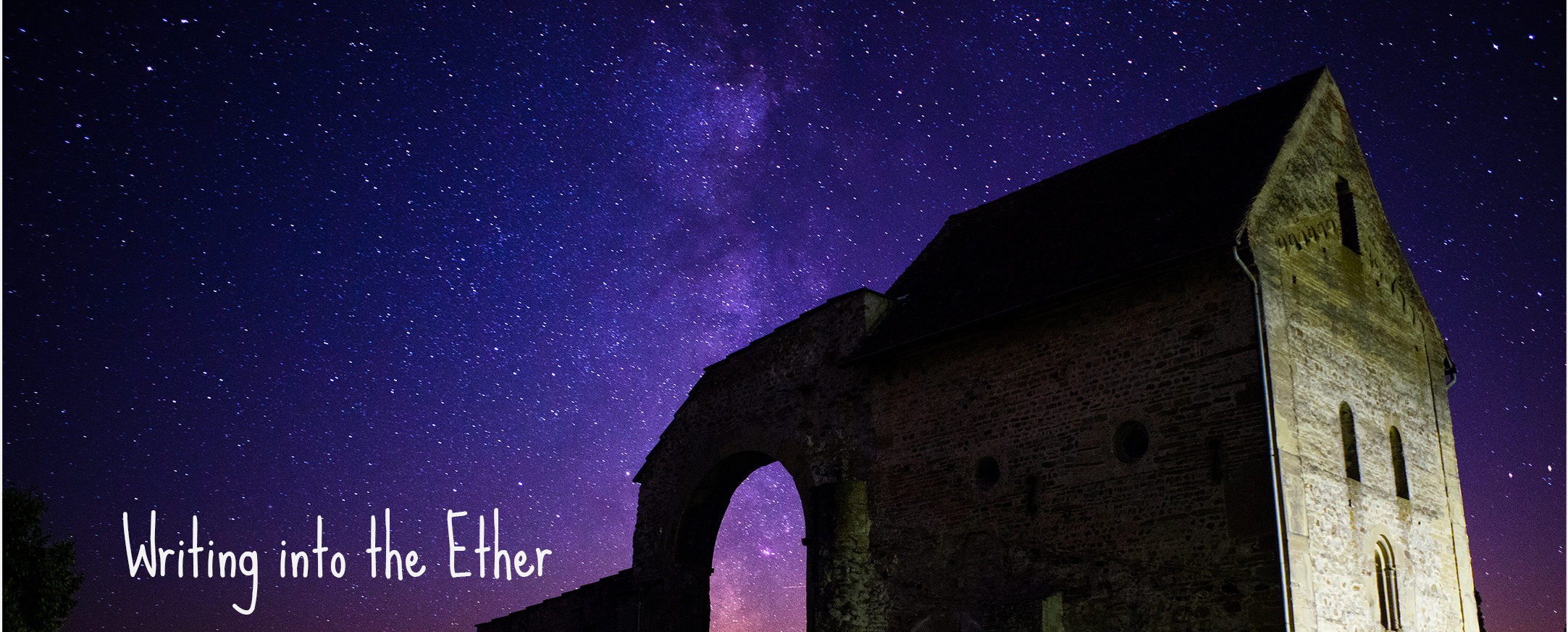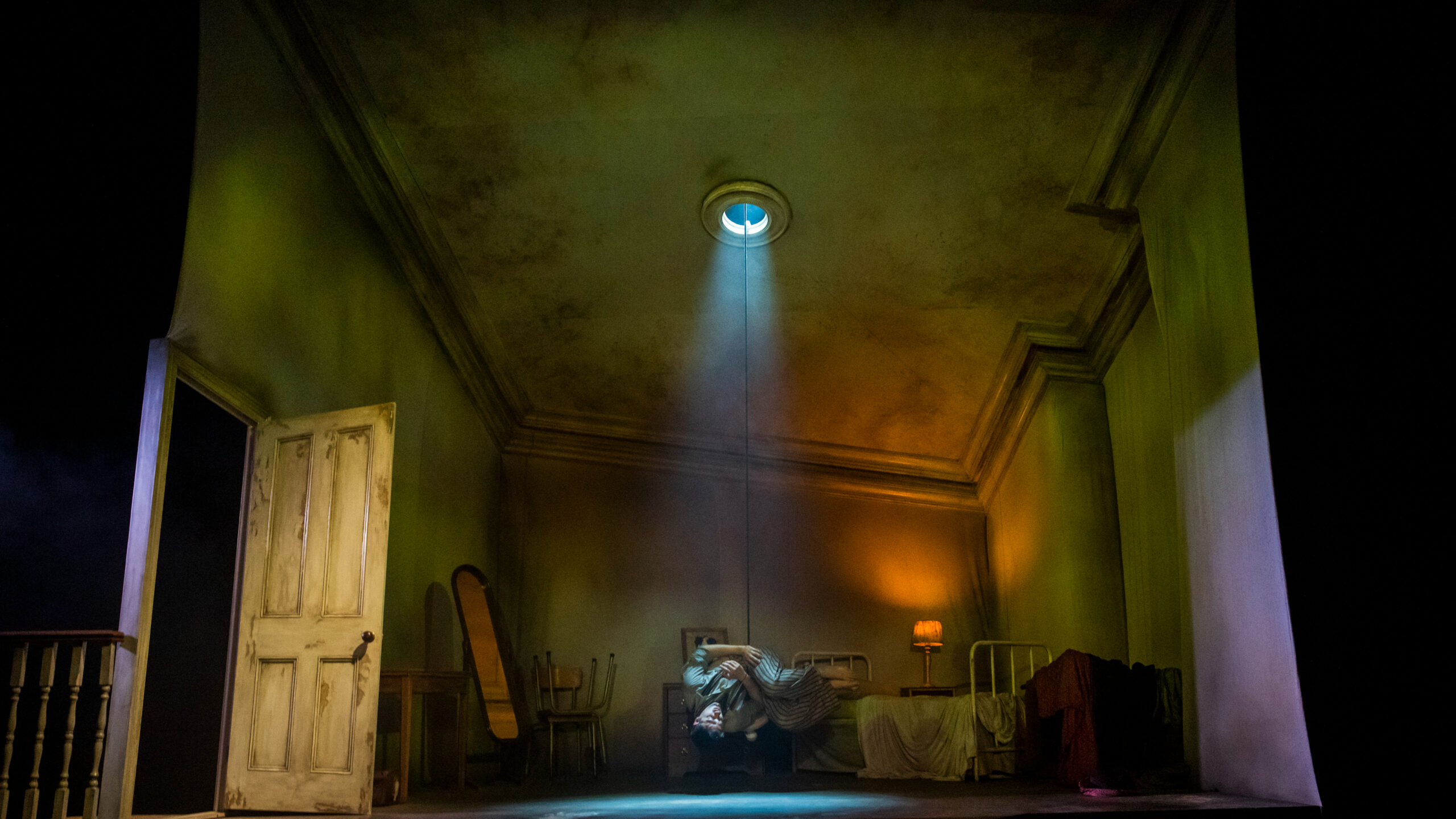It’s not often that I am left speechless after seeing a play. Not a lot can move me nowadays but after seeing Metamorphosis it left me in a deep and thoughtful mood. So much so that it’s taken me just over a day to truly reflect on its impact on me!
Of course, this is a review of my theatre experience rather than a review of the text itself so although I could write a full essay on the subject, I won’t dwell on the deeper qualities of the story too much! The play (adapted for stage by Lemn Sissay and performed by the infamous Frantic Assembly) follows dedicated salesman and family-first man, Gregor Samsa (Felipe Pacheco) and his slow descent (or metamorphosis if you will) into a state of deep disturbance, which is perceived as burdensome to his family (Troy Glasgow as Father, Louise Mai Newberry as Mother and Hannah Sinclair Robinson as Grete.)
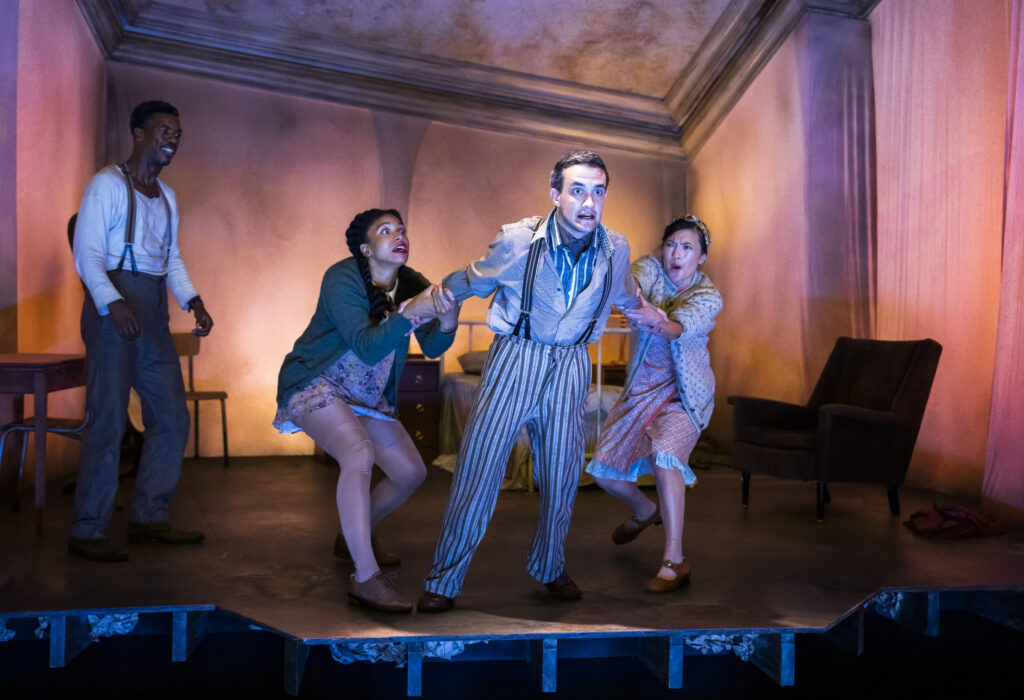
I admit that the only time I’d heard of Kafka was in Bridget Jones’ Diary when she tries to sound intelligent at a book launch party. So knowing that this play was originally based on the novella of Franz Kafka’s “Metamorphosis”, gave me high expectations and glimmers of intrigue. It was sure to be artsy, evocative and give me some food for thought. The performance absolutely met and exceeded those expectations, with the entire thing astounding me from start to finish.
My partner told me that Frantic Assembly are well known for their physical theatre and so it was no shock to us that the audience was full of young minds eager to learn more to help them study – and we all were equally enraptured. Contortion, acrobatics and the tangling of bodies; the physicality and fluidity of the choreography was flawlessly orchestrated and performed.
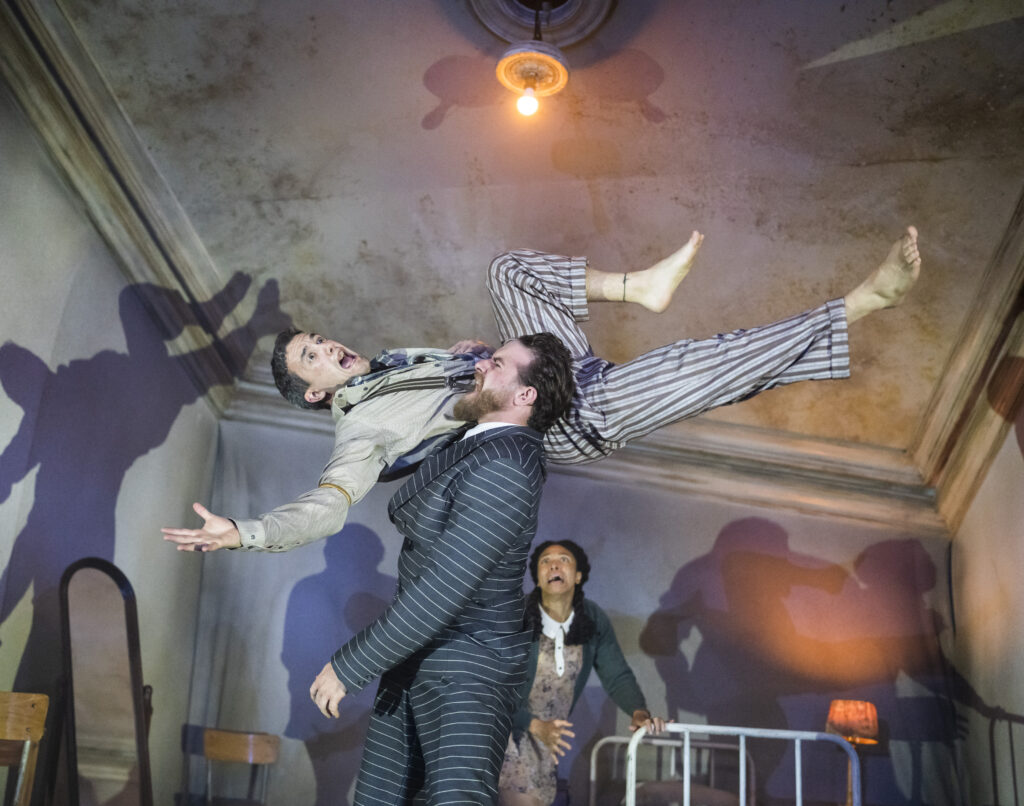
The use of lighting and sounds within the play were nothing short of beautiful. They really emphasised the disturbances of the mind that Gregor suffered – the surreal fluttering of moths, the echoing of distant voices… it all merged into one incredibly unsettling display of the inside of this man’s head as he goes from day-in-day-out breadwinner to a “monster” confined to his room…
And what a room it was! The set itself consisted of a twisted room on a platform that could be pivoted and changed according to the tone of the scene; distorting to show the way the walls were shrinking inward, turning to see a new character’s perspective, allowing the characters to escape through gaps in the walls and the floor to give the illusion of disappearing ghostly figures. It kept you on the edge of your seat and really added to the physicality of the play, emphasising the claustrophobia and isolation of this man’s existence.
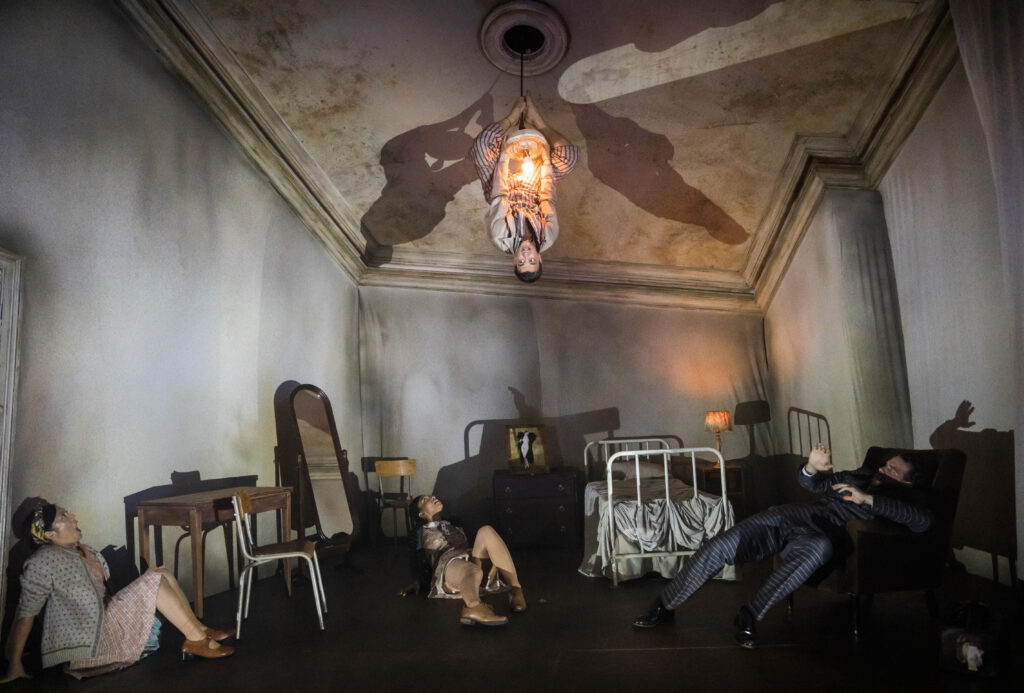
I am so glad that I managed to buy a copy of the accompanying script so I could reread and analyse it further. It really took me back to my years examining the symbolism within texts and has encouraged me to think more analytically of the subject matter. First published in 1915, the original novella is over 100 years old, and yet this stage adaptation maps so perfectly against a modern landscape. With the ever-present pressures of capitalism to meet targets, increase profits at all costs and the lingering stigma towards those who cannot ‘participate’ in the way society expects us to, it made me realise that we have not travelled as far as we’d maybe hoped as a society, particularly during this period of high costs of living and a substandard social safety net.
This play was emotive, thought-provoking and astoundingly well-produced with incredible performances from all involved; the play was full of entrancing soliloquies and monologues which were perfectly delivered by every single member of the cast. I’d recommend it to anyone who is looking for something to challenge you to explore the darker side of the human experience, while you marvel at the artistry of a spectacular piece of theatre.
Images courtesy of the Belgrade Theatre and Theatre Royal Plymouth (C) Tristram Kenton
